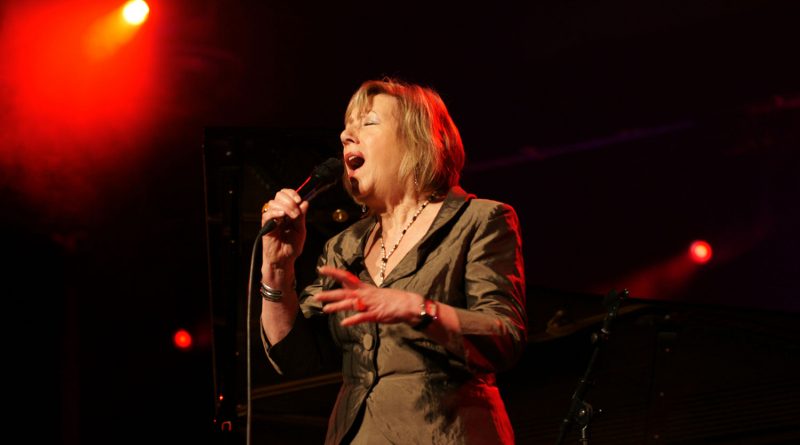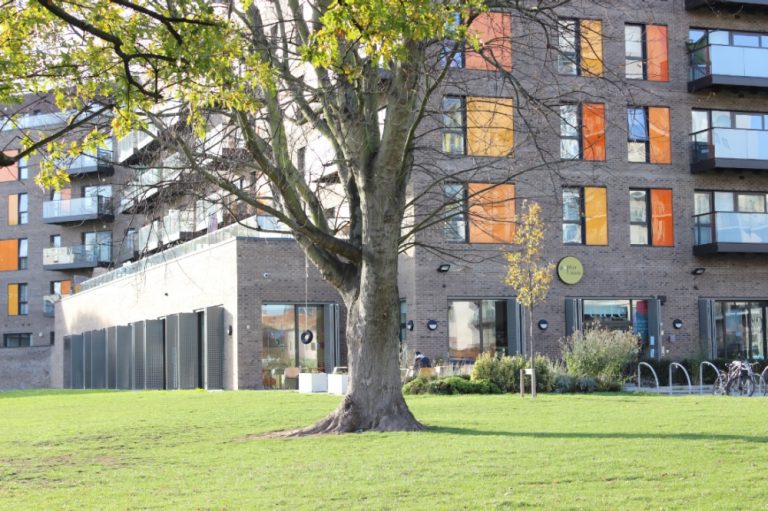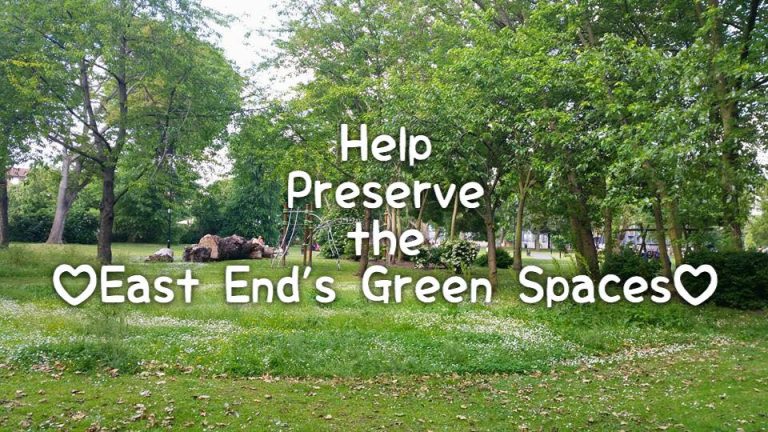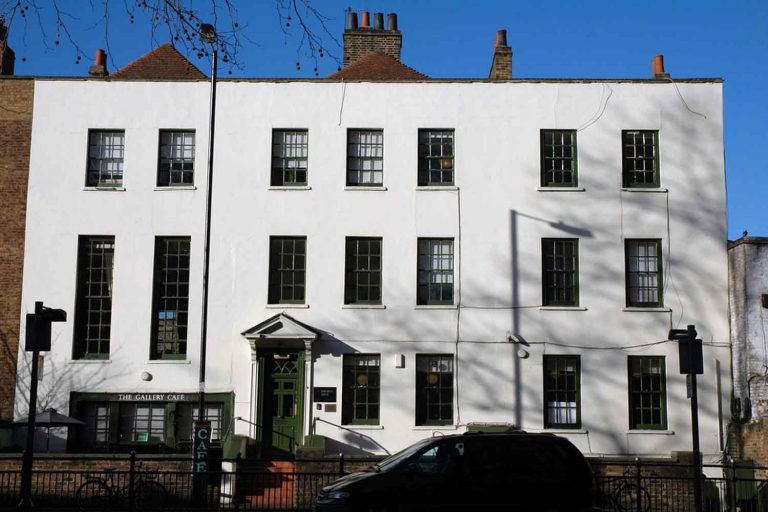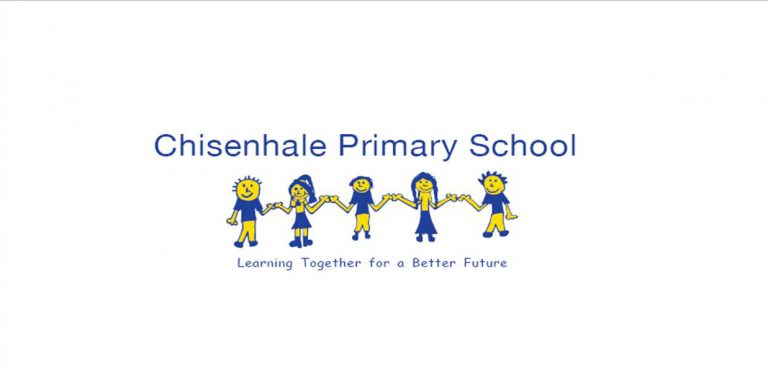Drake’s unlikely collab: Norma Winstone from Devons Road
From the bombsites of Bow to the international stage, the 82-year-old jazz musician thought her career surprises were over … until Drake came calling.
When East End jazz musician Norma Winstone received an email asking if Drake could sample one of her songs on his new album, she didn’t think too much of it.
‘To be honest, I’d never listened to him because rap is not my thing,’ she says. It wasn’t until Winstone told her son, a drummer in the band Hot Chip, that she realised she’d just been approached by the most-streamed Spotify artist of all time.
IDGAF featuring Yeat is the most popular track on Drake’s UK/US No. 1 album, For All the Dogs, racking up 143 million streams since its release on 6 October this year.
The song opens with a 64-second sample of The Tunnel, a 1977 track by jazz trio Azimuth, immersing listeners in a futuristic musical world accompanied by lively piano ornamentations and Winstone’s soft floating vocals.
Drake’s management told Winstone how much he loved the experimental style of The Tunnel, which she produced with Kenny Wheeler and her then-husband John Taylor on the band’s first album 46 years ago.
Winstone says: ‘He uses about a minute which is quite long and he hasn’t really interfered with the music that we made all those years ago which I was happy about. Drake often uses interesting music in the background to what he’s doing, so when he asked I said: ‘Yes okay, thanks very much!’’
Growing up playing on the bombsites of Bow during World War II, Winstone is one of the more surprising samples featured on the album, which includes the likes of 21 Savage, Frank Ocean and Nicki Minaj.
But far from being an undiscovered talent, Winstone was one of the most influential British jazz musicians of the ’60s and ’70s, working with the likes of John Stevens and Dave Holland (before Miles Davis came calling).
Winstone was awarded an MBE in 2007 and still tours the world at the age of 82. Her energy and zest for life are palpable even on a video call from her spare room in Kent.
Though she no longer lives in our neighbourhood, Winstone’s childhood in East London played a formative role in her musical career and she confesses that old East End habits die hard.
Born during the Second World War in the old St. Andrew’s Hospital in Bromley-by-Bow, a derelict East London features strongly in her early memories. But as a child of the East End, she was unphased by the bomb sites and poverty caused by the war.
‘Two houses had been demolished almost opposite our house … we used to play there and throw bricks at each other – that sort of thing!’ she laughs.
Winstone’s grandmother was born in a workhouse in Mile End and went on to rent a house near Spratt’s pet food factory on Devons Road. It was here that Winstone lived until the age of 10 when her family was finally moved off the eight-year waiting list to a council property in Dagenham.
She explains: ‘We used to say you were ‘moved down the line’ because Dagenham was the next stop on the train and everyone got moved there from the East End so it didn’t really feel like we were leaving.’
Although I loved classical music, I never really wanted to sing that. I wanted to sing like Sinatra, Ella Fitzgerald and Lena Horne.
Norma Winstone
With a self-taught pianist for a father and a mother who loved to sing, Winstone’s childhood was filled with music and she remembers her parents queuing for opera tickets ‘in the Gods’ at Sadler’s Wells Theatre.
While in Bow, Winstone attended Devons Road Primary School – now called Clara Grant – which was when she started learning the piano at the age of seven.
December brought Christmas parties in Essex with musical performances from all the family, including Winstone’s eight-year-old rendition of Lena Horne’s The Lady is a Tramp.
Though her mother hadn’t the means to learn an instrument herself, Winstone’s parents encouraged her musical abilities and she remembers fondly a school music teacher in Dagenham who gave her piano lessons for free after the other students had gone home.
Winstone eventually started travelling to Trinity College on Bond Street for piano lessons, though she was reluctant to study singing as she knew they would train her to sing classically.
‘Although I loved classical music, I never really wanted to sing that. I wanted to sing like Sinatra, Ella Fitzgerald and Lena Horne,’ She beams.
Winstone soon found a jazz singing teacher in Essex and started performing at weddings and other functions, but she found herself wanting to improvise and quickly grew frustrated with the restrictive set lists.
‘I knew what I wanted to do then, so I continued to build my own repertoire of jazz pieces so if I ever met the right musicians, I’d be able to sing them,’ she says.
After several years touring East End jazz pubs like the Black Lion in East Ham and the Vulcan on Westferry Road, Winstone’s unique repertoire earned her a four-week slot at Ronnie Scotts in 1966, launching her career in the jazz industry.
Releasing 30 albums to date, Winstone has received much critical acclaim and is showing no sign of letting up anytime soon.
Her music is known for its improvisational style, defying clear definition: ‘I guess I am a jazz musician,’ she says: ‘I hate labels but I suppose you need them.’
‘I heard Ella Fitzgerald’s scat singing when I was about 12 and I just thought, ‘Wow, I love this,’ and I copied it … But it was just music that attracted me. Music of any kind really.’
So will IDGAF’s rage rap beats be a permanent addition to Winstone’s music library?
She admits not just yet, as she still can’t find the time to listen to all the jazz and classical music of her era.
But then again, Winstone knows better than anyone that you don’t have a 60-year-long career by sitting still. She might just defy our expectations once more.
If you liked reading this article, find our interview with ‘Grime Kids’ screenwriter, Theresa Ikoko.

